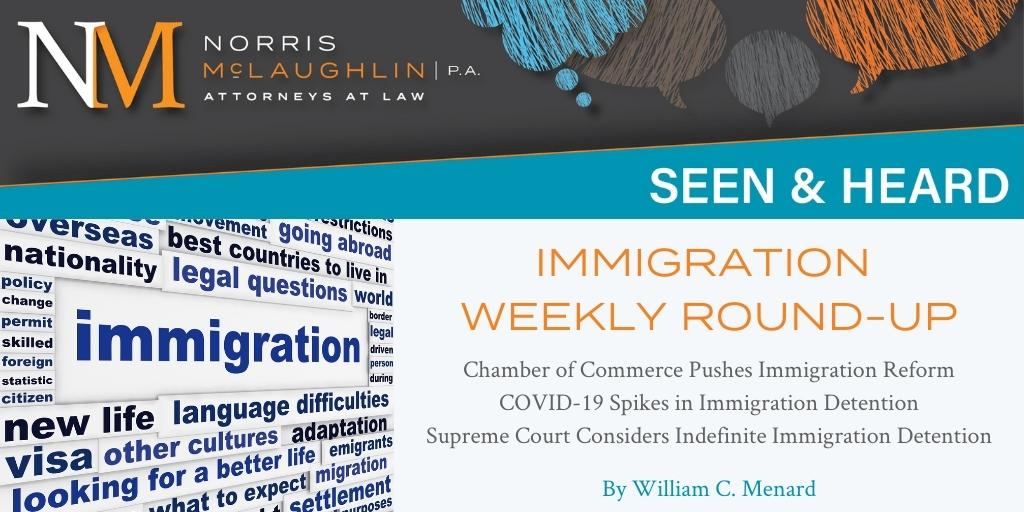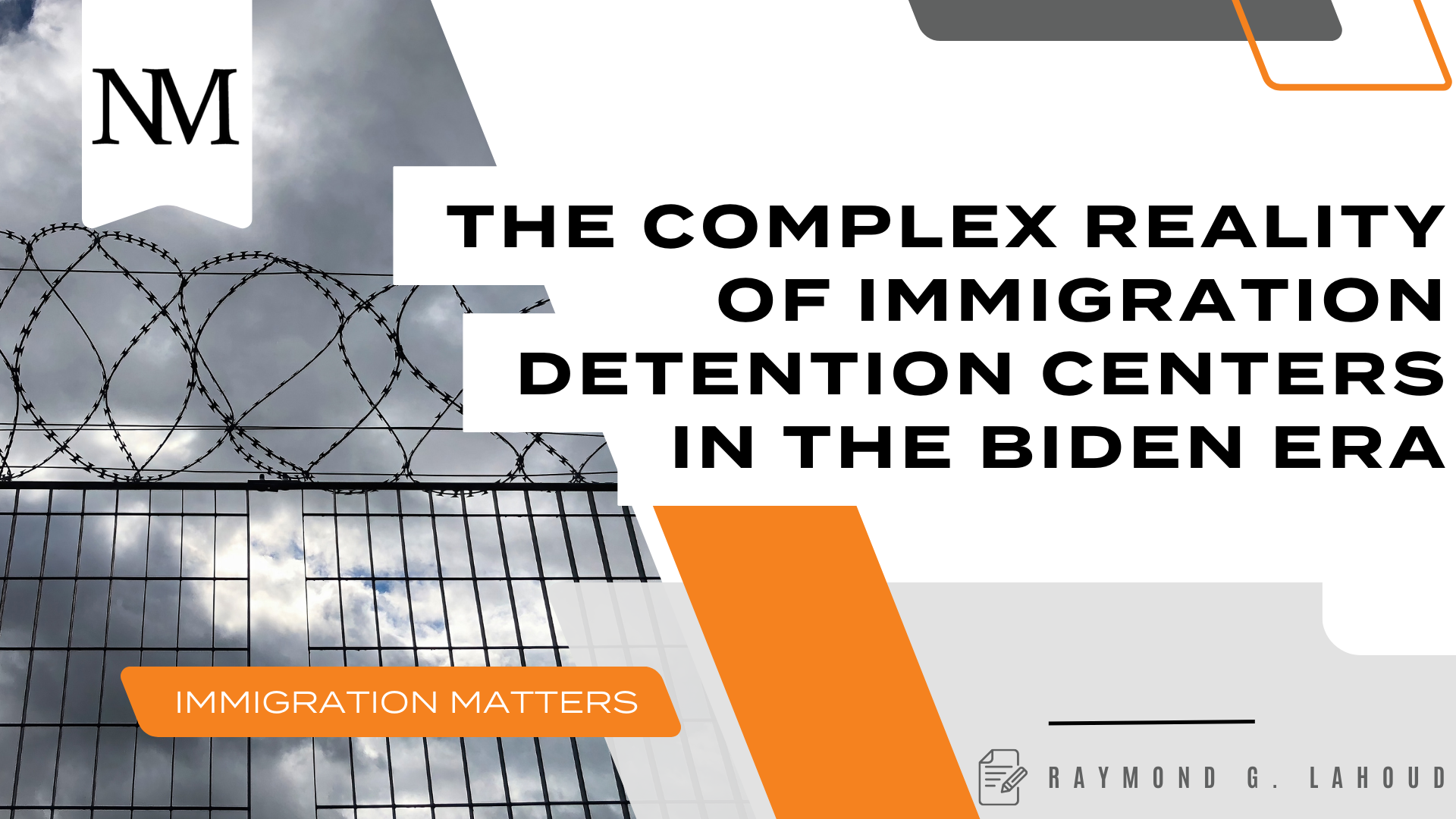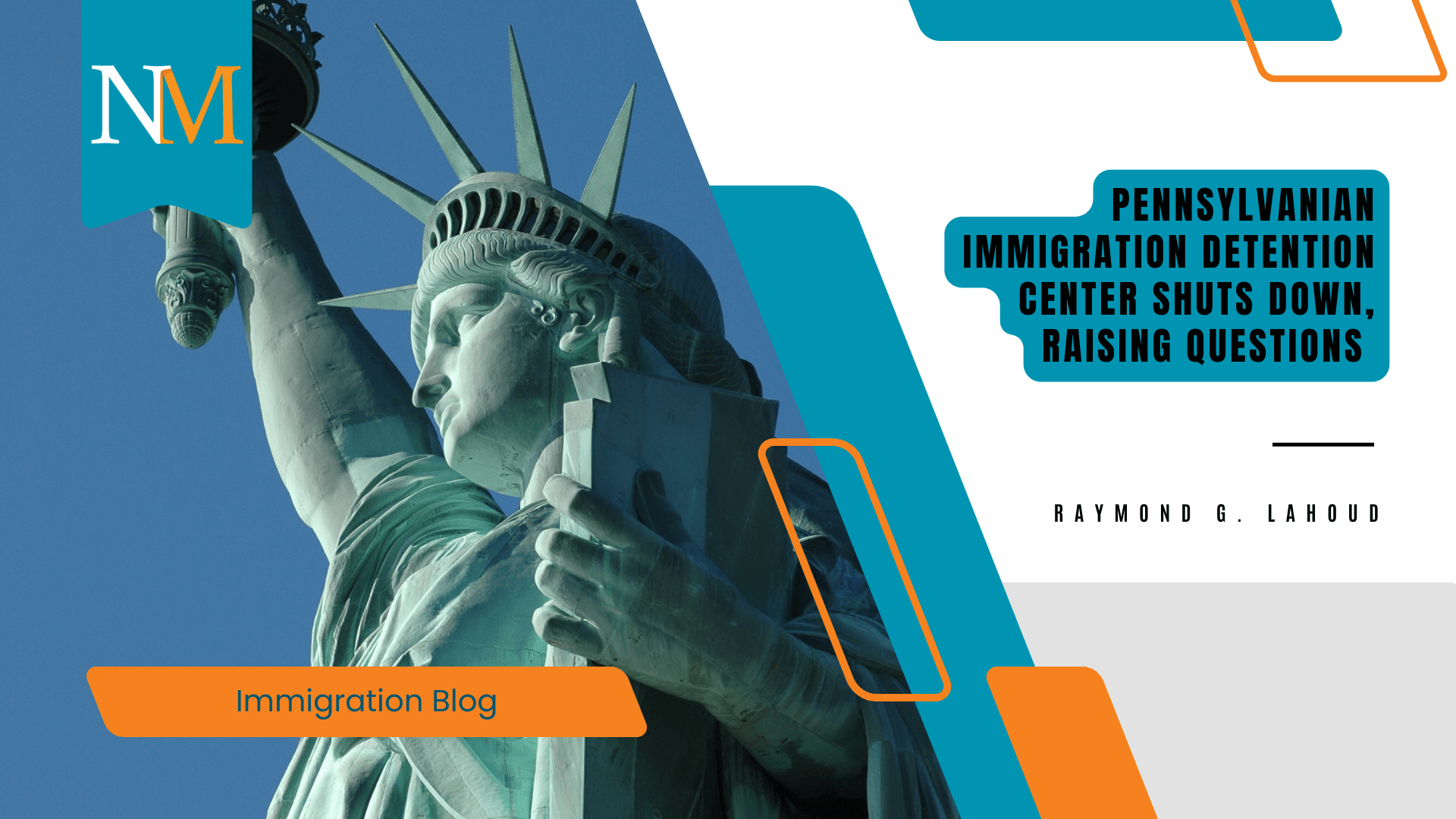Immigration Weekly Round-Up: Chamber of Commerce Pushes Immigration Reform; COVID-19 Spikes in Immigration Detention; Supreme Court Considers Indefinite Immigration Detention

United States Chamber of Commerce CEO Calls for Doubling Legal Immigration
This week, Suzanne Clark, the CEO of the U. S. Chamber of Commerce, advocated for the federal government to double the size of legal immigration into the country in order to address widespread worker shortages. During the Chamber's annual State of American Business address, Ms. Clark also asked for legal relief for undocumented immigrants brought to the United States as children, familiarly known as "Dreamers." Ms. Clark emphasized that "we must create a permanent solution for the 'Dreamers,' those young men and women who know no other home and who contribute to their communities, but whose legal status is in limbo."
The U.S. Chamber of Commerce is not the only organization advocating for updates to old immigration laws that have restricted economic growth. Several executives in the hospitality industry sent a letter to both President Biden and Congress stating that "we are struggling to find workers and are shutting down our businesses or cutting back on hours of operation because we can't find waiters, cooks, housekeepers, managers, and people of all skill levels to hire, despite providing good pay, benefits, bonuses, and other incentives." Many business leaders support a plan proposed by congressional Democrats to offer lawful status to millions of undocumented immigrants currently residing in the country, as well as significantly reduce backlogs for those applying for immigration relief, many of whom have been waiting several years, or even decades, to gain status in the U.S.
COVID-19 Infections Rise Sharply at Immigration Detention Centers
Since the start of the new year, the number of COVID-19 infection rates among detainees at immigration detention centers around the United States have increased by more than 500%, with nearly 1,800 immigrants being monitored or isolated due to confirmed infections. Just two weeks ago, the number of positive infections was a little under 300. The massive surge has put a new spotlight on vaccination rates in prison – only about 1/3 of immigrants who have entered detention over the past six months have been vaccinated, with almost 40% refusing to receive it. A medical adviser to the Department of Homeland Security ("DHS"), which oversees immigration detention, emphasized that vaccine availability must be combined with education about COVID-19 and the effectiveness of the vaccine.
Since the beginning of the pandemic, over 30,000 detainees have tested positive for COVID-19. The recent uptick may be attributed to the Omicron variant, which has been found to be more easily transmissible than other variants of COVID-19. Attorneys from across the United States have urged U.S. Immigration and Customs Enforcement ("ICE") to release detainees that have medical conditions, which place them in greater harm of becoming severely ill or dying from COVID-19. According to government records provided in a federal court case, as of December, there were over 5,000 immigrants in ICE detention centers whose health issues or age placed them at higher risk.
Indefinite Immigrant Detention Cases Presented to the U.S. Supreme Court
On Tuesday, the U.S. Supreme Court heard oral arguments for two immigration cases that addressed the rights of detainees to have a bond hearing before an immigration judge following six months of detention. Both immigration cases were brought by immigrants seeking protection in the United States based on their fears of returning to their home countries after being previously deported from the country. The cases present tension between the Immigration and Nationality Act, which permits extended detention by the Department of Homeland Security for those who have been previously removed from the United States, and the U.S. Constitution, which prohibits imprisonment without due process of law and which, as Justice Neil Gorsuch stated during arguments, generally requires "a judicial official to make that physical liberty determination." A decision from the Court is expected by June of this year, and could impact thousands of individuals in immigration detention every year.
If you have any questions about this blog post or any other immigration concerns, please feel free to contact me at wcmenard@norris-law.com or 484-544-0022.




